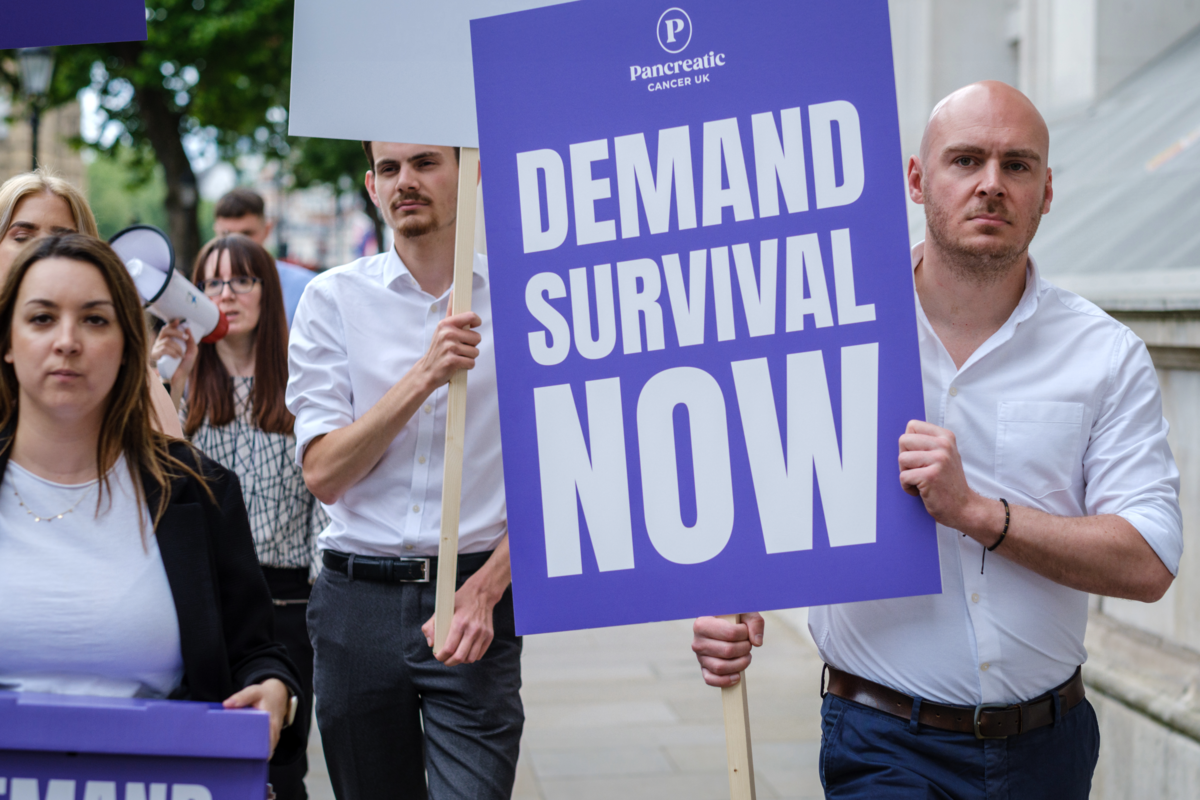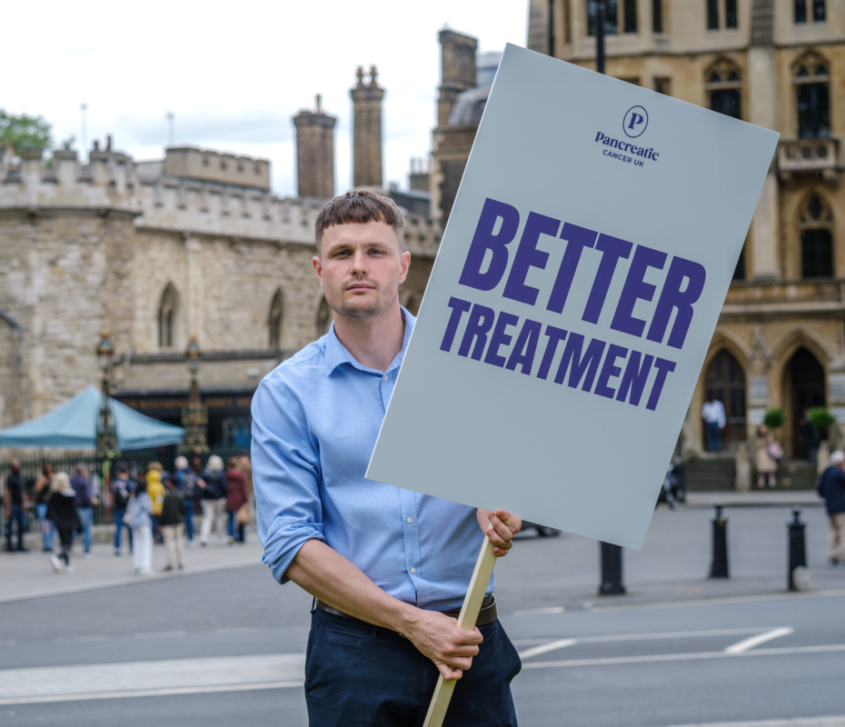We can't stop now
Your local candidates have been selected by political parties, and they want your vote. One of them will be your next MP.
But right now, they might not know anything about the issues facing people with pancreatic cancer.


It was incredible to have so many people supporting our calls to demand a better future for people affected by pancreatic cancer. We’re confident that this will help us push political leaders to take notice, and get high up the political agenda.
Lewis, who lost his Dad Jeff to pancreatic cancer and has led the campaign, joined us in handing in this letter to 10 Downing Street. Throughout the campaign, he’s shared his story of how pancreatic cancer has affected him and his family, and what needs to change to finally turn the tide on this disease.
Jeff died just six months after diagnosis. His symptoms were initially mistaken for diabetes. It was only after a second visit to the GP, and weeks of waiting for scan results, that the cancer was discovered. He was diagnosed too late to get any treatment. Jeff’s story is all too familiar for people affected by pancreatic cancer, stories of symptoms missed, slow diagnosis, and long waits for treatment. That’s why we have to make sure that this General Election would be the one that brings about the changes people affected by this devastating disease need and deserve.
Working with Lewis, we launched this letter to call on leaders of the five biggest UK-wide political parties to prioritise pancreatic cancer should they form the next government. This came at the right time, as the General Election will now take place on the 4th July.
That’s why, as well as going to Number 10, we handed this in to leaders across parties, calling on them to commit to three key actions to drive desperately needed change for people with this disease.
These are:
These actions are crucial in improving survival, which is currently only 7% over five years, and improving quality of life for the 10,500 people who are diagnosed with this cancer every year. We’re confident that if these are addressed, we could double survival by 2029.
Over the coming weeks and months, we’ll keep working hard to ensure that political leaders from all parties are taking action on pancreatic cancer. This next Parliament can and must be the one to finally bring about desperately needed change for people with this devastating disease.”
Your local candidates have been selected by political parties, and they want your vote. One of them will be your next MP.
But right now, they might not know anything about the issues facing people with pancreatic cancer.


“Dad was an engineer his whole life and loved fixing things. If Dad was here today, he would say ‘I know we can fix this’ and would be urging the next Government to commit to making pancreatic cancer a priority, so that others don’t have to suffer like he did.
“I am asking whoever becomes our next Prime Minister to listen to the thousands of people who have backed this campaign and commit now to pledge to improve survival rates for pancreatic cancer. This General Election is a unique opportunity for all party leaders to pledge to help us beat this terrible disease, by committing to invest in life saving research, deliver earlier diagnosis and provide faster treatment.
“Pancreatic cancer has been overlooked for too long. Too many families are being unjustly robbed of precious years and memories with their loved ones. Whoever forms the next Government has the power to change that. We can improve survival rates for pancreatic cancer in the UK, and we must.”